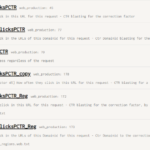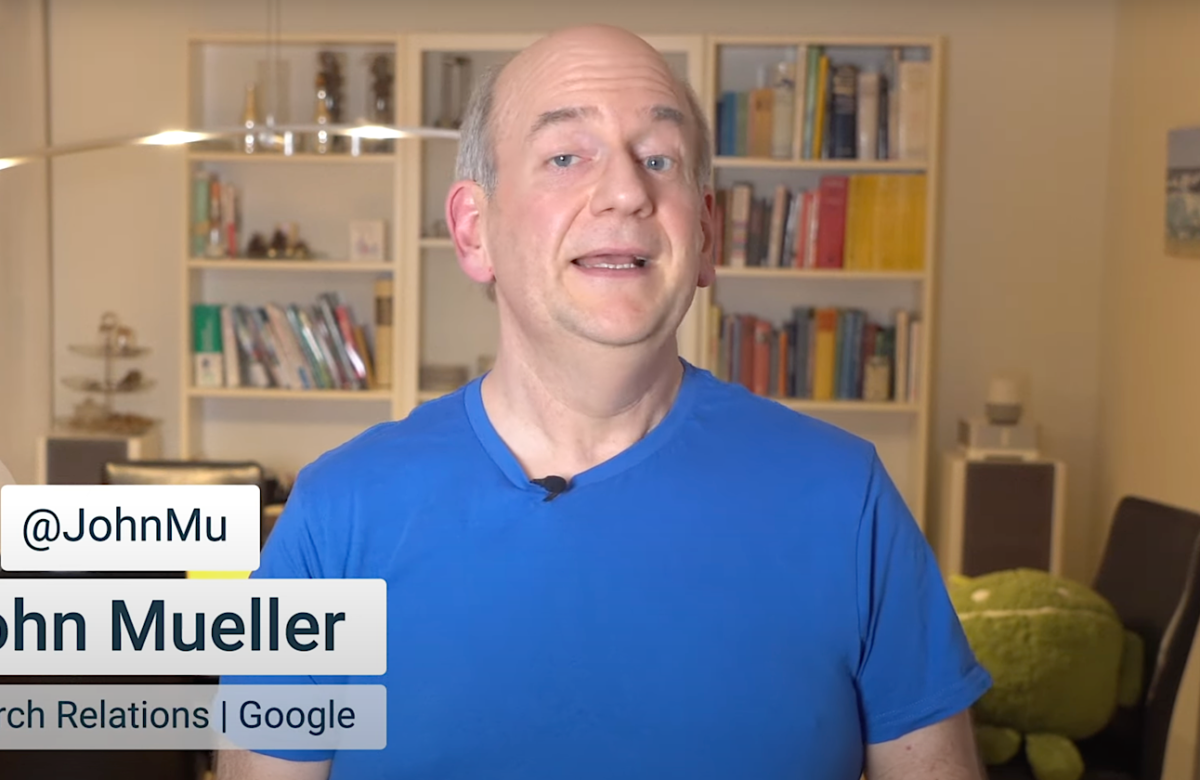
Google Answers If Matching How It Rewrites Title Is A Good Idea
- Digital MarketingNews
- July 24, 2023
- No Comment
- 116
[ad_1]
Google’s John Mueller answered if it’s an inexpensive thought to match the title factor to how Google rewrites them within the search engine outcomes pages (SERPs).
Somebody on Mastodon seen that Google was altering the title components on their webpages, more often than not eradicating the location identify from the title.
That appear to point to them that perhaps Google sees the location identify as redundant and maybe they need to simply drop the location identify from the title tag altogether.
Ought to You Match How Google Rewrites Title Tag?
“Google is altering titles and more often than not, it’s eradicating the location identify from the title.
For instance, in case your web page title is “What’s website positioning and the way does it work? | Web site identify”
Then it would rewrite it as “What’s website positioning and the way does it work?”
Looks as if we should always not embrace the location identify within the title tag. (As a result of Google already has launched website names)”
Google’s John Mueller answered:
“I might not assume {that a} rewritten model is best (for website positioning or for customers), and I’d suggest retaining your website identify in there — as a result of it makes it simpler to verify a website identify that we present above the title.
Additionally, it’s a widely known sample, so I wouldn’t change it only for Google.”
Mueller, in an afterthought, added:
“Now that you simply talked about it, I think about this (matching the title factor to be what Google exhibits) is one thing that lots of people do…”
Is Matching Title Component to What Google Reveals Good For website positioning?
Any query about what is nice for website positioning in relation to HTML components, must be thought-about below the sunshine of how the World Huge Internet Consortium (W3C) has outlined that factor.
The W3C defines the requirements of HTML and Google largely follows these requirements.
What the W3C says concerning the title factor is that the aim is to outline what the webpage (known as a doc) is about.
That is how the title factor is officially defined:
“The title of a doc is specified by the TITLE factor.
…It ought to determine the content material of the doc in a reasonably vast context.
The title will not be a part of the textual content of the doc, however is a property of the entire doc.”
So, the important thing takeaways concerning the title factor is that:
- The title communicates what the doc is about in a “pretty vast context”
- The title factor is a property of the whole doc
That signifies that it’s not it’s personal factor by itself, like a person header, however moderately it “communicates” for the whole doc.
Google’s official title element recommendations (on Google Search Central) for title tags echoes what the W3C recommends in somewhat extra element.
Google advises that title components must be descriptive and concise. The title components shouldn’t be imprecise.
Lastly, Google recommends concisely branding the title. Meaning utilizing the location identify is okay however repeating a advertising slogan throughout the whole website will not be essentially concise.
Why Google Rewrites Titles
When Google started rewriting extra titles a number of years in the past, many SEOs complained about it.
What was frequent in lots of the examples that many individuals shared is that the title components failed to explain what the web page was about.
The title components typically contained the focused key phrases, however not a concise description of what the web page is about.
That’s not stunning, provided that many website positioning websites suggest including key phrases within the title tag as an alternative of recommending to explain what the web page is about.
Clearly, if the key phrase is related to what the doc is about then put the key phrase in there if you would like.
Another excuse Google rewrites titles is as a result of the outline of the whole web page will not be acceptable.
For instance, Google typically ranks a webpage for what is actually a subtopic of the principle subject of the webpage.
This occurs when Google ranks a webpage for a phrase that’s in the midst of the doc.
Rewriting the title factor to match the context of what the web page is being ranked for is smart.
Google Search Central says the identical:
“The purpose of the title hyperlink is to greatest characterize and describe every end result.”
If Google is rating the web page for a subtopic of the principle subject then it is smart for Google to alter the title factor to one thing that’s related to the search question.
Takeaway: Ought to You Match Google’s Title Rewrite?
That’s most likely not a good suggestion as a result of Google is perhaps rating the web page for a subtopic.
In order for you a actuality verify concerning the title factor, give ChatGPT a strive by inputting the textual content of the doc and asking it to summarize it in ten phrases.
It’s affordable that most individuals know what their very own webpages are about, so give it your greatest shot.
Featured picture by Shutterstock/Asier Romero
[ad_2]
Source link












